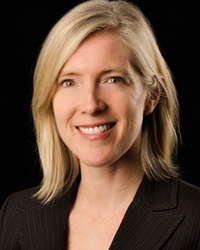Boston’s “outer urban” real estate boom - by Kathryn Graber
Boston’s real estate market is booming, and the redevelopment and revitalization is spilling outside the city’s borders to nearby locations, including Quincy, Chelsea and other outer urban areas. For example, Gate Residential’s West of Chestnut, the first residential complex Quincy Center has seen in 10 years, and One North of Boston in Chelsea, are cited as major factors supporting the renewal of both cities. Other suburbs are seeing significant developments as well, such as the apartments, retail space and restaurants being constructed at The Merc in downtown Waltham. While many people, including prospective residents and businesses tend to view development strictly as a positive trend, there are risks associated with such robust development.
The sheer length of time it takes to secure the permitting necessary for significant projects and to construct the infrastructure leaves developers susceptible to ever changing economic conditions, such as significant increases in construction costs and economic downturns. In addition, large scale development often requires multiple partners in order to finance the immense size of the project, and when investors stop financing a project, as was a factor with the $1.6 billion development of Quincy’s downtown by Street-Works Development LLC, it leaves the developer unable to continue without that backing.
Having said all that, it can’t be denied that development is, in many cases, a positive sign of a healthy economic environment. The developments in Quincy, Chelsea and Waltham, and similar developments in other outer urban areas, are helping these cities to flourish. The success of these residential properties is likely to positively influence commercial real estate developments in these areas, which is attracting restaurants, retail and other industries.
Another logical reason that outer urban developments are on the rise is because real estate prices in Boston are soaring. It stands to reason that at some point, even the most devoted city dweller is likely to at least consider options slightly outside city limits in an effort to save money. This goes for not only prospective residents, but for commercial tenants as well. The more convenient the commute to Boston, the more appealing the neighborhood, which is why communities like downtown Quincy, on the redline, and Chelsea, one stop from North Station on the commuter rail with the silver line expansion on the way, are so attractive. Why pay $3,000 or more for a one bedroom apartment in Boston, when you can save one-third of that by renting a brand new “Seaport-style” one-bedroom at One North of Boston with a short commute to the city?
The true test of the success of the developments in these outer urban areas will be during the next economic downturn. As demand for space decreases when companies downsize and people relocate to other cities, putting downward pressure on prices in Boston, will those who have made places like West of Chestnut their home see this as an opportunity to move to Boston, or will they stay put? We’ll just have to wait and see.
Kathryn Graber is partner at Posternak Blankstein & Lund, Boston, Mass.
Newmark negotiates sale of 10 Liberty Sq. and 12 Post Office Sq.

Five ways to ruin a Section 1031 Like-Kind Exchange - by Bill Lopriore

How COVID-19 has impacted office leasing - by Noble Allen and John Sokul

Make PR pop by highlighting unique angles - by Stanley Hurwitz









.png)
